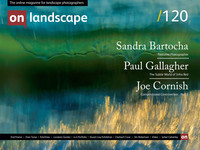Featured Photographer

Sandra Bartocha
Sandra Bartocha is a German photographer, speaker and author specialising in natural landscapes as well as abstract work, with the specific aim of creating images that evoke an emotional response.
Sandra is vice president of the GDT – German Society for Nature Photography, chief editor of the magazine the GDT Forum Naturfotografie, and author of various publications, including Fotoschule in Bildern. Naturfotografie and the highly acclaimed coffee table books LYS - An Intimate Journey to the North and Rhythm Of Nature.
Her pictures have been awarded in major international competitions, including Wildlife Photographer of the Year and the International Photography Awards, and are regularly presented in exhibitions in museums and galleries in Europe.
Sandra was a contributor to the pan-European project, Wild Wonders of Europe.

Michéla Griffith
In 2012 I paused by my local river and everything changed. I’ve moved away from what many expect photographs to be: my images deconstruct the literal and reimagine the subjective, reflecting the curiosity that water has inspired in my practice. Water has been my conduit: it has sharpened my vision, given me permission to experiment and continues to introduce me to new ways of seeing.
For this issue, we’re delighted to be able to bring you an interview with Sandra Bartocha. It’s taken a little while to do so as Sandra has been busy bringing to completion Lys - An intimate Journey to the North, her joint project with Werner Bollmann, but I think you will agree that it has been worth the wait.
Was there a sense of inevitability about your becoming a professional photographer – your father was one?
Yes, absolutely. Sometimes it is interesting how life paths are chosen. My dad worked as a photo journalist and joining him on assignments was always interesting. For me, it was very clear that I didn't want to sit behind a desk day by day ... I’d rather be out, meet people and have exciting challenges.
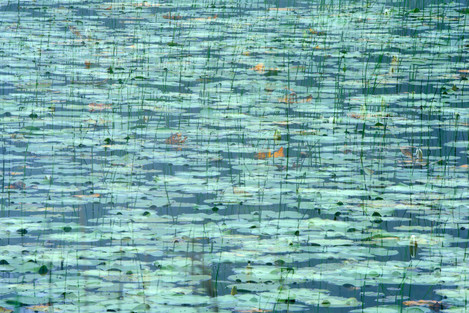
During your studies in media and English literature, you worked as an assistant to a studio photographer. How did this influence your photography? Did it give you a particular appreciation for and understanding of the importance of lighting?
It did influence me in a way, in that I did know that I didn’t want to be a studio photographer! It was a kind of an old school studio, and I was so bored by the stereotypical portraits they did that it was not a good choice for me. Of course, there are always many influences that shape a vision ... so it might help me that bits and pieces of lighting scenarios remained subconsciously in my head.
When I started out, I just tried to learn as much as possible. I read any magazine I could find; I bought every photography book I could gather ... and experiencing many different genres of photography definitely helped me in finding out where I belong as a photographer.
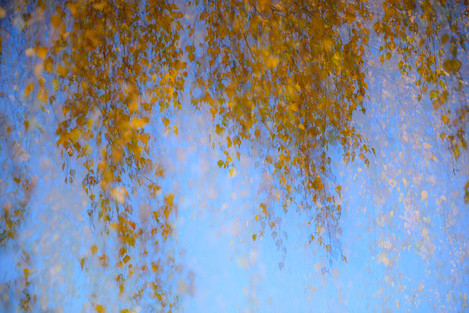
There seems to be a marked contrast between many of the European nature images that I see and those from the UK. Composition and use of light tend to be more creative, and there’s often a sense of the ethereal. Do you perceive any difference in emphasis between the two? If so, where do you think this stems from?
In that case, we first have to answer the question what creative is? ;-)
I believe that there are regional differences throughout Europe. It's not only the UK vs. mainland Europe. There is a lot of difference between the colourful and decorative imagery from the Mediterranean countries vs. the self-reflective art of the Scandinavian photographers. My impression is that images often reflect the weather, the landscape and the general mindset of a culture. Of course, this cannot be generalised ... but there is a tendency.
In my opinion photography in the UK is a bit influenced by the classic American landscape photography. The greater nature and landscapes are ... the easier it is to fall into the trap of taking just beautiful classic images. I always say that the more boring your surrounding is, the more creative you have to be to produce interesting photos. But I feel that in the past years the image styles have become more unified in general ... maybe by the democratising nature of image exchange on social media platforms.
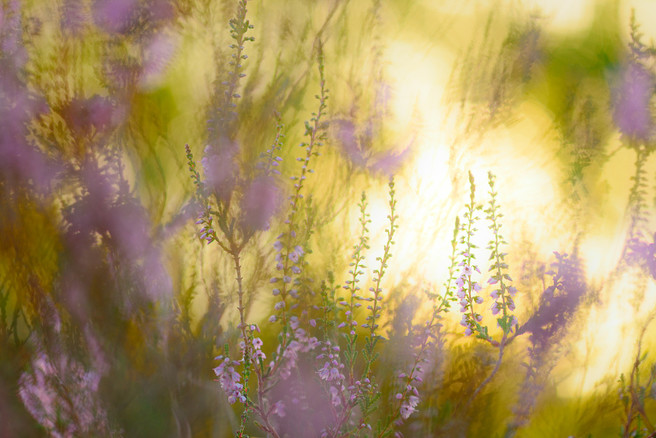
I think I’ve read that for your photography is about the sensory experience as much as the end product? What is its appeal? What draws you to a place – home or away?
It definitely is the feeling of being alive when I'm out. It is hard to describe. I am a very emotional and deeply connected person when it comes to nature. Being in nature, feeling warm sun rays or ice needles on the face ... rain, mist, hail ... hearing the wind whistling in the leaves ... this is the magic of being outside. And the results are personal images that reflect these feelings ... no matter where they are taken.
Where do you look for inspiration? Who or what do you consider has influenced you most?
I am a sponge ... or input junkie. I get inspired by daily life. Social media channels are ever-present with inspirational content, but I am actively striving for more input in many situations ... visiting photography festivals, art museums, etc. This is not an active search, though ... it happens en passant.
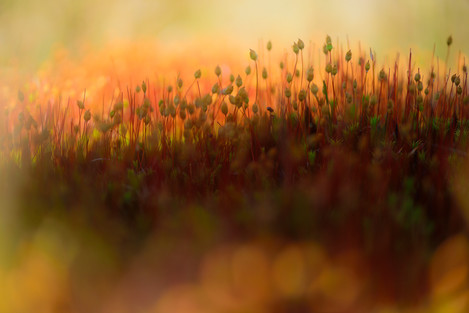 When I look back, there have been great mentors in my local photo club and when I was 18 I spent a year as an au-pair in Minnesota and got acquainted with the works of Jim Brandenburg. His 90-day journey along with his way of emotionalising images impressed me deeply and surely influenced my work. (MG: Interestingly I see that the book of this, Chased by the Light, is now available as an iPad App.)
When I look back, there have been great mentors in my local photo club and when I was 18 I spent a year as an au-pair in Minnesota and got acquainted with the works of Jim Brandenburg. His 90-day journey along with his way of emotionalising images impressed me deeply and surely influenced my work. (MG: Interestingly I see that the book of this, Chased by the Light, is now available as an iPad App.)
How important are competitions? You were involved in judging the Wildlife Photographer of the Year Competition last year. What was it like to be on the other side of the fence?
When I started out as a photographer, I took competitions much more seriously than I do now. In the beginning, it was only "for the money". Later I learned that being successful in a major competition helps put your name out. I've been judging or sitting by in competitions for many years now ... be it as a judge and RAW control for the GDT European Wildlife Photographer of the Year or the Wildlife Photographer of the Year competition, and I really enjoy the curating process of selecting great images for an impressive exhibition. Being at the other side of the fence makes you more aware of the fact that apart from a few mega outstanding images it is a matter of pure luck whether you end up winning or not. And of course, that introverted, calm images have less chance of winning.
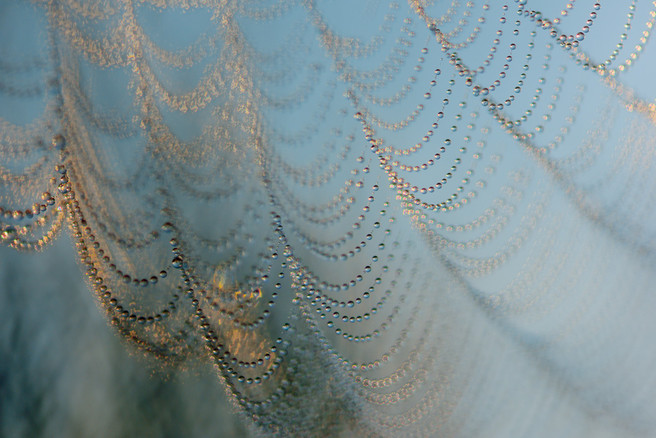
Photographers tend to criticise juries for their taste and most of the time it is because their pride is wounded by not being successful. I don’t look at selections anymore and discuss the stupidity of jury decisions. I just take it as THE selection of the year and am happy with the ones that inspire me and put my images in as a lottery ticket in the draw ... and when I'm winning, I'm lucky and if not I know that it is not because I'm a bad photographer. In the end ... personal work and consistency always pay off more than producing images just to win competitions.
Do you think of yourself as a photographer or as an artist?
Good question. Both I think. There is definitely an urge in me to create something that reflects my vision of the world. But I do enjoy the crafting side of producing a classic sellable image as well.
Your exhibitions have recently included some of your more abstract work. How are you finding this is received? I’ve been told that abstract doesn’t sell well, though when I show work alongside artists I’ve not found this a limitation. What has been your experience?
Honestly. I'm not sure what does sell these days. Photography is a tough business when it comes to exhibitions and selling prints. And I can understand. It's either that you invest in art ... or have a free patch of a wall inside your home. To invest a large sum must coincide with really deeply falling in love with a piece. So just liking something is not a sales trigger.
Therefore, I do enjoy exhibiting as I find that an image printed on a beautiful paper ... displayed in a top quality frame ... is just the best way of celebrating photography. That does not mean I'm selling a lot ;-).
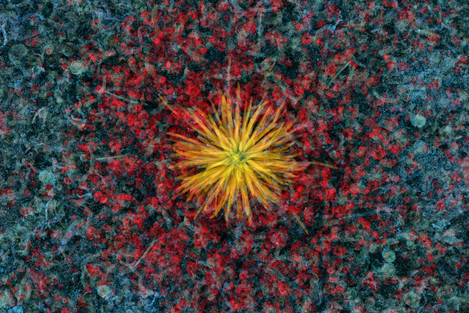
I prefer to exhibit my more abstract work because I would hang this on my walls. I'd never display a classic flower or landscape shot in my home. Adding to this is another even more important reason which is to say that my intentions in producing series of abstract work comes more from my artistic side than the pure technical ability to produce a well-exposed photograph.
Although it is expensive to produce exhibitions, I would never make the audience and the reception of imagery be my guide for a selection.
How do you choose to print and present your work – for clients, and for exhibitions? I believe that you also mix images and music (recorded, but also on occasion live) for audio visual presentations?
I love exhibitions (see above), and the tendency is to present my work large (40x60"). I am lucky that my boyfriend has specialised in fine art printing so I have complete control over the quality of my prints. But I do love the combination of music and images. I'd rather call it a visual concert.
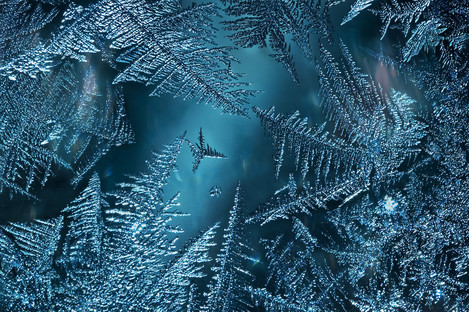
Music is a very important part of that, and I enjoy working very closely with composers who are inspired by my work. It is not only about finding an appropriate soundtrack for one’s images ... it is more about combining two mediums that work perfectly on their own to form a symbiosis that is even better than either alone. Working with stills, videos and audio can form an alliance that is highly emotional and visually challenging for the audience. I've often had people come up to me after a screening telling me how deeply moved they have been. This is an amazing reward for one’s work.
Can you choose 2 or 3 of your own images that have particular resonance for you and tell us a little about them?
There are three images that are kind of my key images - one being The Magical Forest; the second is the Light Show image and third is my Tree Vision image.
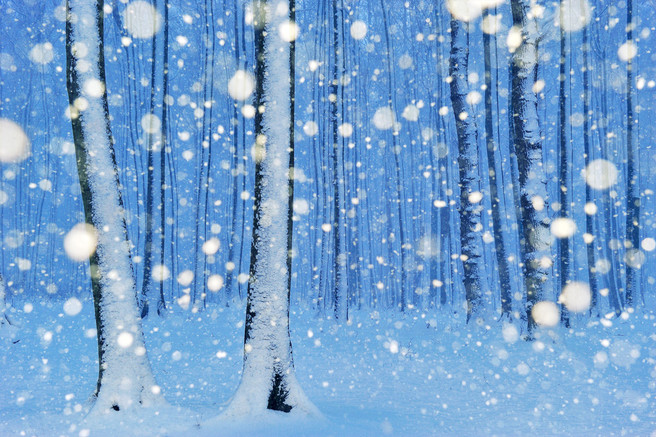
The Magical Forest
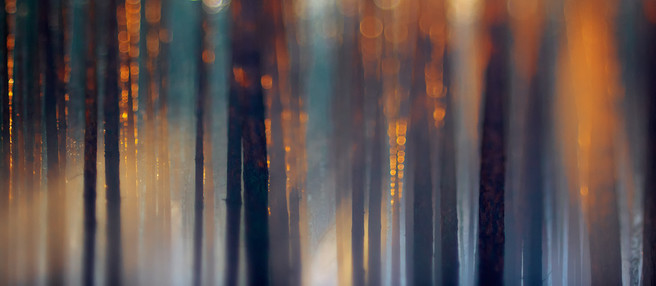
Light Show
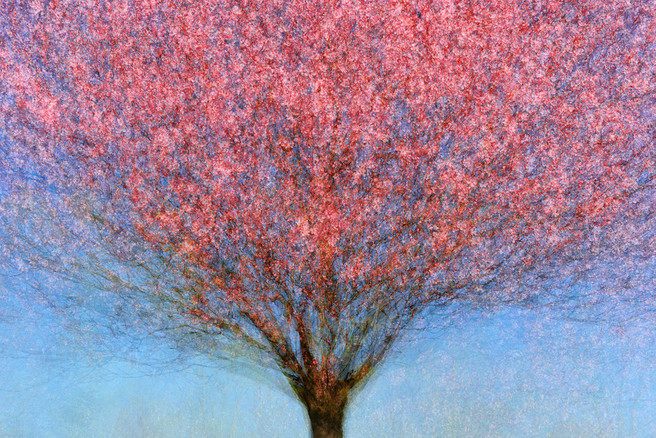
Tree Vision
We do take nice images all the time but it is very seldom that we produce images that everybody is connects with. In all three cases I knew that they were special in the second, I looked at the camera display. In all three situations, I was able to transfer what I felt into an image where the audience connects.
One of your favourite images - Light Show – was taken with a basic camera. Is equipment important? What combination of camera and lenses do you favour?
Yes and no. It is not important to the extent that you can create amazing work with the most simple cameras. You just have to have a vision. Look at the quality of iPhone images.
I don’t always use the latest equipment but I'm looking for cameras and lenses that suit my way of working. Equipment that makes it possible to visualise my ideas properly. In that sense I want to have a camera that I can adjust manually ... that is robust in heavy weather ... that can produce high-quality files for printing big. With the Light Show image, I didn't have my familiar camera equipment, and it helped me by pushing my creativity beyond the stereotypical approach ...
I believe from time to time this can help to break up hardened mindsets ... but in general I love working with my Nikon D810 and Nikon lenses ranging from 14-400mm. :)
How has the transition from transparency film to digital capture affected your image making?
I still like to compose images perfectly in camera and adjust everything perfectly on location so that I don't have to work on the computer to make an image work. But the freedom of being able to take more images is liberating as it provides the room for experimenting more and of course controlling the outcome is much easier. I remember film days when I shot 1-2 rolls of water movement and sometimes there was not one that worked perfectly. Today I sometimes shoot up to 1000-2000 images of a promising situation.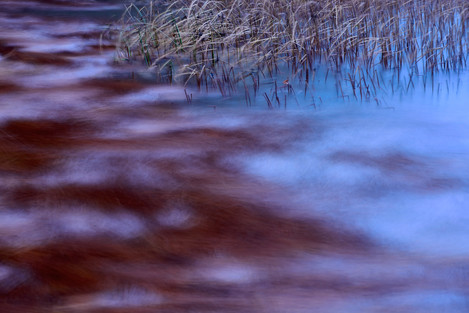
You still like your images to be ‘pure’ (created in camera) and I know that you’re happiest in the field rather than at the computer. Have you found a time efficient way of processing your images?
No. :-) I guess I'm totally old school when it comes to processing. I know ways of making it more efficient, Lightroom probably being one of these easy-to-use tools. But I still prefer using Nikon View for converting RAW to TIFF and working with Adobe Bridge and Photoshop for selecting and a short fine tuning of images. As I don't spend too much time on my files, it works rather well for me right now.
Many argue against working ‘for free’ but I read that you’ve found that it can pay off?
One has to differentiate what kind of free work can help. I'm definitely not a fan of giving away photography for free. What I meant is more to engage oneself in voluntary work that can lead to paid work in the end. I often receive emails asking how you become a professional photographer and I cannot answer this properly as there are hundreds of different biographies that can be successful.
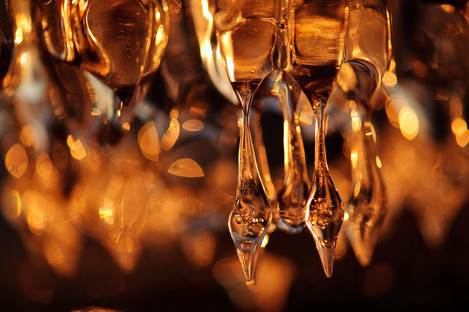 For myself I have noticed that being involved voluntarily in local camera clubs or photographic societies, putting a lot of unpaid effort, time and expertise into organising meetings, festivals, exhibitions, competitions or anything ... has helped me grow as a person and as a photographer, has helped me become part of a community and has therefore probably helped spread my name amongst decision makers. But of course, it has to be backed by professional work and great photography as well.
For myself I have noticed that being involved voluntarily in local camera clubs or photographic societies, putting a lot of unpaid effort, time and expertise into organising meetings, festivals, exhibitions, competitions or anything ... has helped me grow as a person and as a photographer, has helped me become part of a community and has therefore probably helped spread my name amongst decision makers. But of course, it has to be backed by professional work and great photography as well.
Tell me a little about your role as Editor of the GDT’s magazine Forum Naturfotografie. Is there any prospect of it becoming available in English?
I've been working as the editor of the magazine since 2008 and I thoroughly enjoy the process of working with photographers around the world. Most important for me is finding people with a distinct style or interesting project/story. There is so much great work out there but unfortunately many of it is interchangeable. I prefer to print only unique work.
As many of the interviews and texts originate in English anyway and are only translated into German we have been thinking of including a downloadable PDF with the English texts, but until now time issues have always prevented this step. Another idea was to partner with other nature photography societies in Europe to have a collaborative magazine that would allow us to have both an English and German edition - but again ... this has to be planned accordingly. Maybe in the future, together with a digital edition.
You’re working with Werner Bollmann on a long term project about the essence of the north called LYS. Tell me a little about this - how was this conceived and how did you establish its scope and extent? Has it presented any particular challenges?
At first, we had this idea of working together - we both have very similar aesthetic values and as we both have a deep connection to the North it was clear that this would be an ideal subject for us. LYS is the Norwegian and Danish word for light and this is what defines photography as such, our style especially, and it is characteristic of Scandinavia on so many levels. We knew that we had to deal with the great masters of Scandinavian photography as well as the huge numbers of photographers travelling there to take pictures, so our approach was more holistic.
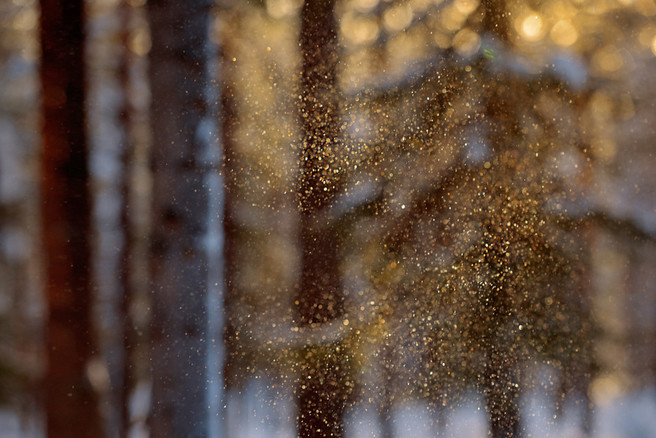
We wanted to photograph our personal journey from the southern plains of Denmark up to the ice cold glaciers of Svalbard - leaving the stereotypical sights behind and concentrating more on the biomes as such - the big landscapes of the North. Everybody who loves the North should feel at home when they browse the images. From the beginning, we knew that the outcome should be a book and an audio-visual presentation.
We knew it would involve a lot of travelling as the distances are huge, so we originally planned three years. In 2011 we started with a concept, brainstorming ideas and collecting ways of representation. The project’s aim was not only to work together but to develop as photographers as well. Werner was known for his clean animal portraits and I have always been connected to flowers and plants. So the intention was also to challenge ourselves and depart from beaten tracks.
In 2012 we began with the "easier-to-get" chapters and worked our way up to the more advanced ones. Looking back I believe we were quite naive with many things. We totally underestimated the work (physically and emotionally) and money that goes into a project like that - especially because we approached it more on a personal than commercial level. There are so many conceptual ideas behind our story and there is so much thought put into details that it is almost self-destructive.
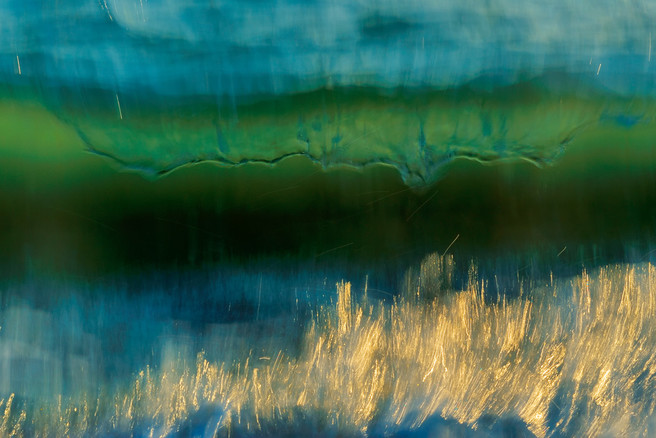
Five years later we are finally approaching the finishing line. I think the result is amazing. The book and the show will premiere at the International Nature Photography Festival in Lünen in October and I really hope that both will be well received by the audience.
You’ve been involved in a succession of projects since 2008 and I read that this almost led you to ‘burn out’. How did you get past this?
I am probably not past it yet. Every day I wish I could just enjoy a really free day without thinking of the workload and forthcoming deadlines waiting for me. I think when you start as a professional photographer it is a bit like running in a hamster wheel. It goes faster and faster and because you always fear to miss out on an opportunity you take on every project, you accept every invitation and so on. Just because you think if you decline they won't present this opportunity again. And often enough this really would be the case.
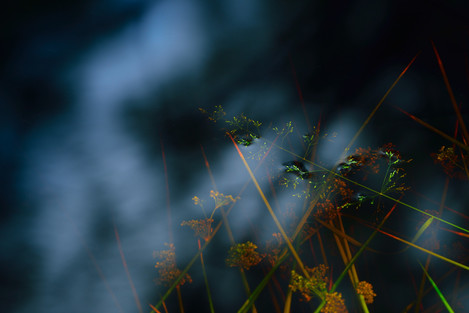
Right now I'm totally involved with voluntary work for the GDT as their vice president as well as finalising and promoting our LYS project ... while trying to earn money with sellable photography in order to be able to allow myself the luxury of doing both first mentioned. :)
My plan is to find time for myself ... to break out of the hamster wheel and balance work and life a bit better in the future.
Looking back now, is there anything you would change or do differently?
Hard to say. I guess there are people out there who have a better ability of defining borders.
I'm too easily engaged with interesting projects that I'm jumping on with joy ... and later I often regret this decision - not the being part of it ... but the time involved. I have a ‘help syndrome’ and people know that they always can rely on me. It's not that I want to change that ... but I definitely have to look out a bit more for myself.
Do you manage to find much time for personal projects? Are there any particular themes that you are keen to explore in future?
I don’t separate work and personal projects too much as most of the time I'm working on projects and subjects I enjoy, and I try to sell these afterwards. With LYS it was a bit different as it involved long periods of travelling and a lot of planning. I don't know if this was a once in a lifetime thing as I'm sure it's not easy to repeat to that extent.
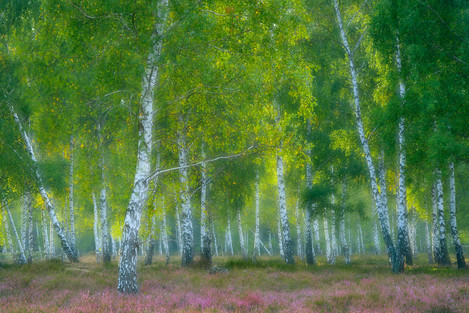
There are a few ideas whizzing in my head. Small ones and more regional ones. I need some time to breathe and have new ideas and inspiration.
What advice would you give to photographers who want to create the quieter, more personal, work but find it hard to be seen or heard against the online tide of oversaturated high drama?
I was sorry that the Whytake community ended so suddenly. I found it a great way of broadening my horizons. Are you aware of anything that comes close to it?
I found it a bit strange to close the site completely, especially considering the huge amount of work and effort people put into building their online portfolios there. I didn’t visit the site regularly though as I am flooded with visual content on so many levels, so I don’t feel I’m missing something. When I'm up to a bit inspiration, I usually go on my Instagram feed as this provides me with non-stop images.
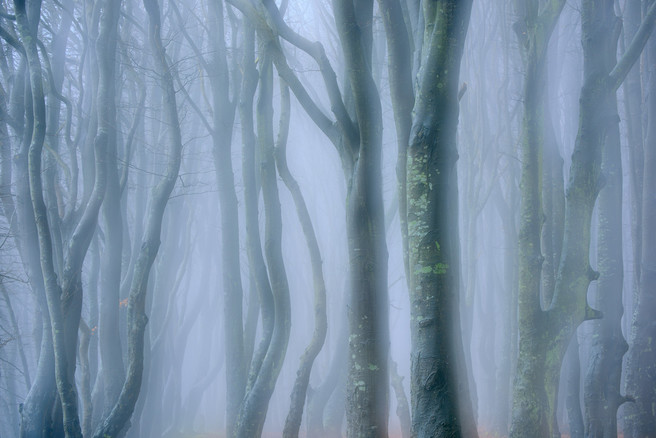
Which photographer(s) do you think we should feature in a future issue? (They can be amateur or pro.)
I'm a bit dizzy in my head after such a long marathon of questions ... Additionally, I'm not aware of the many names you have probably already featured in your magazine. Thinking of landscapes, there is Kilian Schönberger who has interesting thoughts and great images.
Thank you very much, Sandra, for completing the marathon….. I have no doubt that readers will enjoy reading your answers.
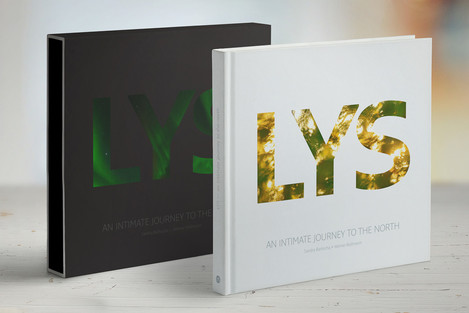
Sandra and Werner start promoting their Lys Project during August and will also launch a pre-order platform for what looks to be a wonderfully thick book at http://www.lys-publishing.com. To see more of Sandra’s work visit www.bartocha-photography.com and www.facebook.com/bartocha.photography
You can see the recording of Sandra talk at our Meeting of Minds conference here

